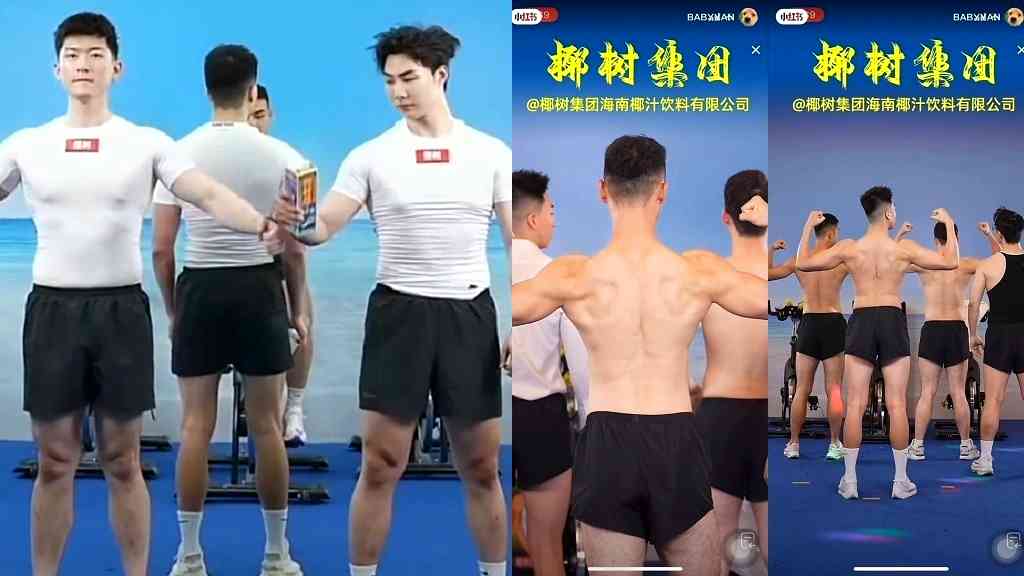Chinese drink switches from sexualizing women to men in ads on International Women’s Day


By Bryan Ke
March 21, 2023
A popular coconut milk brand in China known for its scientifically bogus claims and advertisements featuring sexualized female models is now using male models.
The turn of events occurred during a livestream on Douyin, China’s version of TikTok, to promote Coconut Palm Group’s drink on March 8, International Women’s Day, Sixth Tone reported.
A video of the Coconut Palm livestream shows male models in shorts and tank tops flexing their muscles while promoting the drink.
The company repeatedly held nightly livestreams following the success of the initial showcase. In one of the broadcasts, Coconut Palm reportedly asked viewers to take screenshots of the male models as they took off their shirts.
Although the recent online buzz was focused on the male models, reports noted that the women usually featured in the company’s ads, known as the Four Beauties, were still present in the livestreams.
Coconut Palm made international headlines in 2017 after claiming that its drink could give women bigger breasts and whiter skin.
The company repeated its claim multiple times in the following years, with authorities finally clamping down on its scientifically inaccurate advertisement in 2019, stating that Coconut Palm Group was “suspected of false and vulgar advertising.”
Ava Kwong, a University of Hong Kong medical faculty professor, also spoke to South China Morning Post that same year to debunk Coconut Palm’s claims, telling the outlet that she had never read any peer-reviewed papers or studies that could support them.
Despite the attention drawn by its drastic marketing change, Coconut Palm still saw a significant decline in sales since the debut of the male models.
Douyin’s e-commerce data analysis platform Chanmama reported that the drink saw its sales dip slightly after the branding shift compared to when women were featured.
Founded in 1956 as a manufacturer of aluminum cans, the company, which is headquartered on the island of Hainan in southern China, has been making the drink since 1988.
Share this Article
Share this Article


